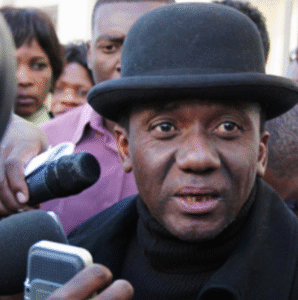CRIMINALIZATION OF LEGAL PROFESSION: HARROWING ARRESTS OF LAWYERS ROCK ZIMBABWE
In a shocking turn of events, the arrest of lawyers Doug Coltart and Tawanda Muchineripi has sent shockwaves through Zimbabwe, igniting concerns about the criminalization of their noble profession. Prominent human rights lawyer Jeremiah Bamu has decried these arrests as a grave threat to justice and the rule of law in the country. The two lawyers were apprehended at a private hospital in Harare while visiting Womberai Nhende and Sanele Mkuhlani, who had been abducted and tortured by suspected state security agents on a fateful Sunday.
The arrests of Coltart and Muchineripi have exposed a worrying trend in Zimbabwe, where legal practitioners are increasingly targeted for carrying out their professional duties, defending the rights and freedoms of citizens, and holding those in power accountable. The incident has sparked outrage among human rights activists, legal professionals, and concerned citizens both within the country and abroad.
Jeremiah Bamu, a well-respected figure in the legal community known for his unwavering commitment to human rights, has condemned the arrests in the strongest terms. He asserts that these arrests represent a dangerous erosion of the legal profession’s integrity and independence. Speaking to reporters, Bamu declared, “The arrest of Doug Coltart and Tawanda Muchineripi is not just an attack on them as individuals but an assault on the very foundations of justice and the rule of law in Zimbabwe.”
The sequence of events leading to these arrests is deeply troubling. Nhende and Mkuhlani, who had been abducted and subjected to brutal torture by suspected state security agents, sought legal assistance from Coltart and Muchineripi. The lawyers promptly visited the victims at a private hospital in Harare to provide legal counsel and ensure their rights were protected. It was during this humanitarian mission that they were arrested by law enforcement authorities.
The circumstances surrounding these arrests raise serious questions about the impartiality of Zimbabwe’s law enforcement agencies and their willingness to uphold the rule of law. The incident has ignited fears that legal professionals who dare to challenge the government’s actions or represent those critical of the regime may face persecution and unlawful detention.
Human rights organizations and legal associations have called for the immediate release of Coltart and Muchineripi, demanding that their rights be respected and upheld. International bodies, including the United Nations, have expressed deep concern over the situation and called on the Zimbabwean government to adhere to international human rights standards and protect the rights of lawyers carrying out their duties.
The arrest of lawyers is not an isolated incident in Zimbabwe. It forms part of a broader pattern of increasing repression, harassment, and intimidation of lawyers and human rights defenders. Legal professionals in the country have been subjected to threats, surveillance, and even physical violence as they strive to represent their clients and advocate for justice.
These actions not only undermine the legal profession but also erode the faith of citizens in the justice system. When lawyers are targeted for simply doing their jobs, it sends a chilling message that justice may be elusive for those who seek it.
The international community has a crucial role to play in addressing the deteriorating human rights situation in Zimbabwe. Diplomatic pressure, sanctions, and diplomatic interventions must be utilized to encourage the government to respect the rule of law and protect the rights of its citizens, including lawyers and human rights defenders.
In conclusion, the arrest of lawyers Doug Coltart and Tawanda Muchineripi while they were performing their legal duties in aiding victims of abduction and torture is a deeply troubling development in Zimbabwe. It symbolizes a dangerous trend where the legal profession is being criminalized, further undermining the rule of law and justice in the country. Jeremiah Bamu’s strong condemnation underscores the gravity of the situation, and it is incumbent upon both domestic and international stakeholders to act swiftly to ensure the release of these lawyers and the protection of their profession’s integrity. Zimbabwe’s future as a just and democratic nation depends on the safeguarding of the legal profession and the rights of its citizens.




